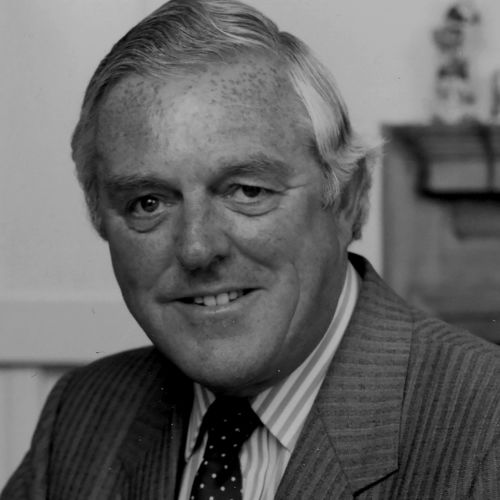After school and military service with the Royal Marines, my father read Classics at university and took up a post at Caldicott School teaching Latin & Greek and became an active Scout Master. This was undoubtedly his vocation and passion in life but the post war turmoil and depression in the Lancashire textile industry caused by Ghandi’s embargo of British cloth in the 1950’s, meant that “Young Peter” was pressurized to come back home to help with the family businesses. His older brother, John, had been killed in action as a Wellington gunner during a sortie over Dresden in 1945 which left only four brothers to take over the management of the family textile business – his cousins George and Robert took over William Reed Weaving, and my father and his other brother William assumed the reins at John Moorby & Sons. Though my father spent a lifetime in textiles from this point onwards, his heart always yearned to be a school teacher and he kept close links with Caldicott for many years.
When John Moorby & Sons elected to close under the Government Textile Rationalisation Scheme in 1959, Peter Reed controversially decided to restart a fine quality weaving business in Barnoldswick. He rented “room & power” from his new father-in-law at Fernbank Mill and focused his efforts on weaving premium cotton sheetings for many of the large Belfast home textile manufacturers. Just as his grandfather had done before him, my father rented space and power from the mill steam engine to power his looms until he built up enough capital to buy his own mill in nearby Blacko, back on the outskirts of Nelson.
![]()
Peter Reed continued to trade twice a week on the Manchester Royal (Cotton) Exchange until it finally closed in 1968. I remember him leaving home every Tuesday and Thursday wearing his bowler hat which was still expected as formal dress on ‘Change at the time. As one of the newest and youngest members of the Exchange, his company Peter Reed (Textiles) Limited was posthumously granted Pillar C14 which had been his late grandfather’s trading position for over a century.
My father’s contribution to the world of fine quality bedlinen will be remembered by his pioneering use of Giza and Sea Island cotton growths, his production of the first 120 inch (3 metre) wide sheets, and his design liaison with Norman Hartnell which eventually lead to him being granted the first ever Royal Warrant as weaver of bedlinen. He was recognized by retailers and housekeepers throughout London as the “gentleman” of the industry, a reputation which he took with him to America and Madeira as his business grew in both those markets.
I remember Peter giving my wife, Karen, advice in May 1992 (before we were married) saying “Whatever you do with Mark, just don’t get involved in the family business …..” Karen, like myself, didn’t heed his advice and we have been in the business now for a combined total of 75 years between us.
As we look back this week and think of what would have been Peter’s 95th birthday, we both salute his contribution to the bedlinen industry, and we hope that he will be a little bit proud of how we are trying to emulate his, his father’s and his grandfather’s legacies in this business which we love so much.
Mark Reed – March 2022






